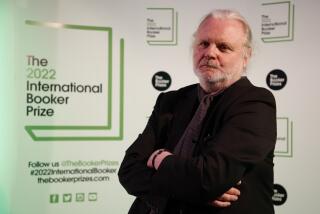Near a People’s Heart
- Share via
“Poets are the unacknowledged legislators of the world,” Percy Shelley once said. He was speaking from early 19th-century Europe, a world away from 1990s America, where unacknowledged power is more likely to lie with spin doctors and political action committees. What Shelley said, however, largely remains true in Poland today: The country has been carved up so many times by invaders since the late 18th century that its heart has remained whole only in its literature.
This is what makes Wislawa Szymborska, who Thursday was awarded the Nobel Prize for Literature, both a political and artistic leader. The intellectual Polish writer Czeslaw Milosz may be better known abroad, but Szymborska is the real “people’s poet” of her nation.
You wouldn’t guess this from the Swedish Academy’s amusingly incomprehensible statement that it was honoring Szymborska “for poetry that . . . allows the historical and biological context to come to light in fragments of human reality.” Maybe it was the translation.
But her work speaks for itself. “In Praise of Feeling Bad About Yourself,” for instance, begins with this observation of some carefree animals: “The buzzard never says it is to blame . . . / When the piranha strikes, it feels no shame.” The poem goes on to defend the animals’ failure to reflect: “Why should they when they know / they’re right?” Finally, the poem concludes that “On this third planet of the sun . . . / a clear conscience is Number One.” Is the poem a spirited defense of gut instinct, of living in the moment? Or is it a subtle indictment of humans for living instinctively rather than conscientiously?
Unlike those Eastern European writers who moralize in heavy-handed prose, the genuinely humble Szymborska lets us answer the question for ourselves.
More to Read
Sign up for our Book Club newsletter
Get the latest news, events and more from the Los Angeles Times Book Club, and help us get L.A. reading and talking.
You may occasionally receive promotional content from the Los Angeles Times.








